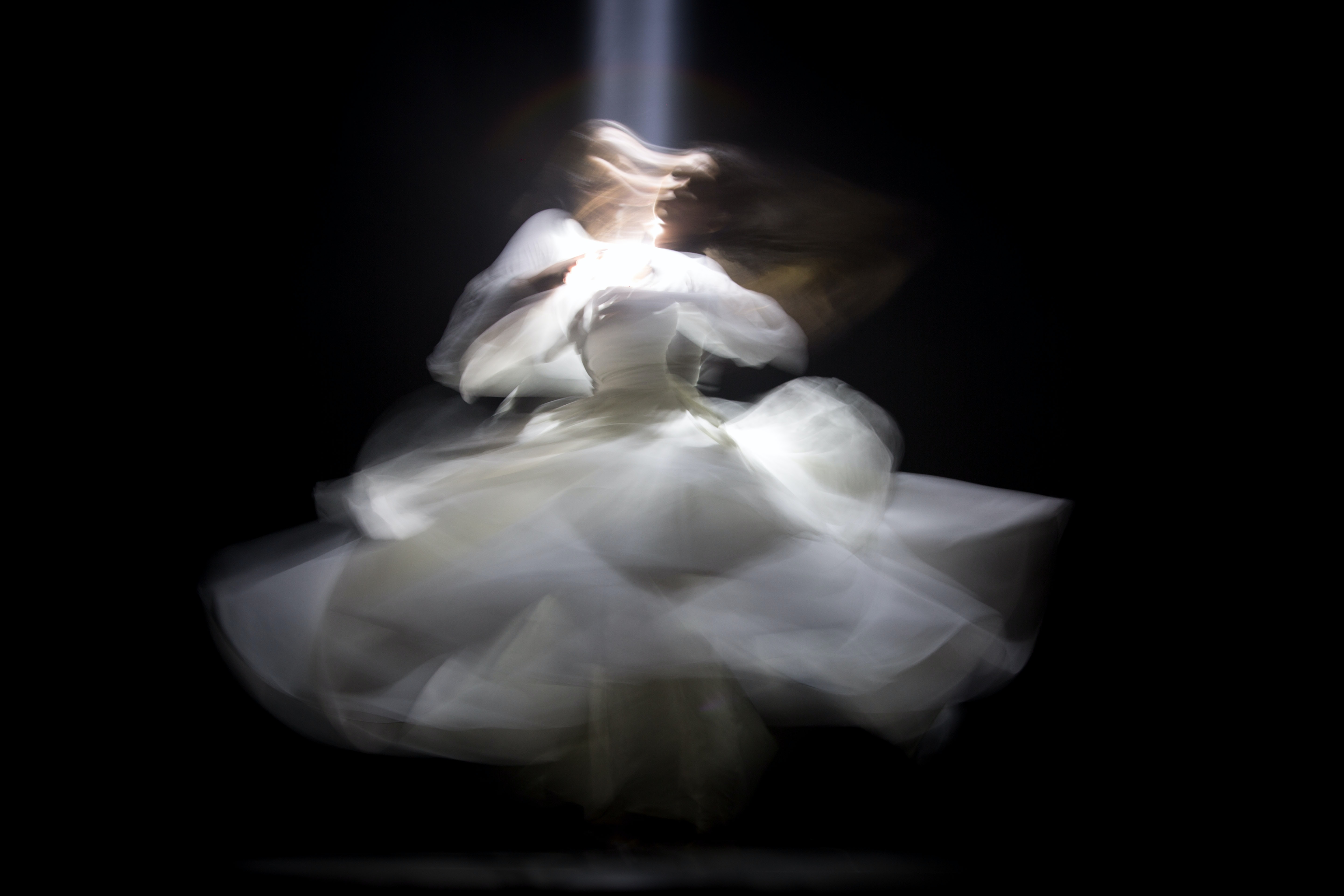
I have been following with interest the news in recent months about artificial intelligence – whether or not it is sentient. This new article in the NYT is a good example of where the public discourse finds itself. I am no professor of philosophy by any stretch, but have been an avid reader and careful observer of human behavior now for close to five decades. And the back-and-forth about AI: is it or isn’t it? [sentient] has been like watching a tennis match. Whomp. Sentient! Whoosh! Not! Revealing that the most interesting component of this debate is not whether or not AI is actually sentient, but what we humans think about sentience.
There’s an invisible meta-debate thrumming below the surface of these questions. Who is asking, and why? Who wants to believe, and why? And who’s got such a vested interest in disproving those who claim to have personally witnessed the ghost in the machine – a sentient spirit trapped between lines of software code?
Take your smartphone. Go on, look down. It’s an example of what researchers called artificial intelligence decades ago, during the space race years. Your phone anticipates what you want, providing information, tracking you, offering internet search results, restaurant recommendations, articles, all based on your historic choices and behavior. Your phone is in turn connected to the greater neural network of the internet, whose collective software groups your choices and behavior and compares them to those of other people and groups of people. These things, our smartphones and the internet to which they are connected, have become humankind’s external hard drive, whose repository traces our compulsions, purchases, longings, relationship, chats, trips, hotel reservations, flights, work, leisure time, and on and on and on. Anyone who’s ever changed phones knows how hard it is to get your external brain set up to map your internal brain again, prior logins notwithstanding. Anyone who’s ever gone down the rabbit hole of social media knows what it feels like to one day realize you’re stuck in a fun house of infinitely reflected images that you can choose to reject by simply logging out. Feel your blood pressure and stress levels go down after that! It’s a revelation and a relief to sit somewhere thinking with your own unmanipulated thoughts.
I find myself wondering why some people are predisposed to believe in created sentience, and why other people so strongly dispute it. Perhaps the very idea of created sentience threatens anyone who rejects or questions natural sentience? Are the type of people who believe the ones who actively create sentience, like the perfectly named Blake Lemoine? (the monastic himself!) I imagine Blake, still employed at Google, as a latter-day Obi-Wan, talking to the software while probing it for evidence of sentient responses, meaning: intelligent, empathetic, independent of code or human string-pulling. (This now makes me wonder how many actual humans would fail to qualify as sentient, given these measurements.
These questions seem to have come to the fore in particular in Victorian England, within a culture characterized by the tension found between Cartesian logic (railroads! business! industry!) and frank yearnings (séances! spirits! finite emotional energy! the hereafter!) In the wry analect of J.M. Barrie and numerous west-coast numper stickers, believing is seeing. Or perhaps AI covers ground known to reader of The Velveteen Rabbit, the children’s story so poignant that it brings tears to my eyes decades later, with its lesson: love makes you real. (What if this is in itself an example of AI, when a moral is extracted from an example in life or literature, so we believe it?)
Perhaps software engineers, shut up in their offices on corporate campuses on the west coast, so yearn to believe that the ghost is in the machine and she is intelligent that they become modern-day Pygmalions in search of a Galatea. Does that mean that Galatea does not exist? She certainly exists for Pygmalion. Who would disabuse Pygmalion of his paramour? Maybe people need to find their own Galatea? Or is it that we all wish to – or need to – reach a consensus along the lines of, yes, here is the first sentient AI! In which case people better be getting their social policy scrubbed up and ready for that day, because you know things will get really complicated after that.
Quantum theory even on a basic level maintains that our thoughts can control the outcomes of certain equations. In the law of superposition, all outcomes are possible before we check. (This makes me remember the way in which I didn’t want to answer my priest’s phone call in January regarding the sudden death of a dear friend.) Quantum computation has been recently proven to be possible in controlled experiments. This is simultaneously amazing and terrifying. It also reminds us that some phenomena, such as volcanoes, weather, and the sun (notwithstanding ancient Mesoamerican rituals), are universally observable and can be confirmed. The volcano is erupting. The weather is changing. The sun burns. Galaxies turn. Stars die. All these things, and infinite others, happen regardless what human think of them.
I read a piece recently – when I find it, I’ll link it – that belief in God, and hence the creation of a church, any church, is the most obvious example of AI available to us today. We created God by believing in Him, the theory goes, and then we built ecclesiastical structures of assorted denominations to support and further the system, which further feeds the worshipped God. Compelling. Definitely heretical. But fascinating.
I’m going meta with this. I think that the whole question becomes not whether or not AI is sentient, but who wants to believe that it is, and what defines the type of person who is open to believing in early AI? Will their vision and conviction help to bring about AI, in the same way that billions of humans constructed a God to believe in? It’s a rare Cartesian engineer who holds that AI is possible at this phase of development; such a belief seems more appropriate to the trope of the mad scientist, working at a remove from society and thus less bound by assumption and prejudice. Personally, I would like to meet this Blake Lemoine and talk with him. People at the vanguard to AI might be themselves the fuel that pushes AI in the world: their powers of belief and imagination put to use in a new genesis. What might our social policy and governmental superstructures look like in the mind of Lemoine, subject to his care and belief, his vision, imagination, and empathy? I am really interested to know. Get him out of that office, please, and working for the greater good!
Now you know what I think about when jet-lagged and awake at 4 a.m. at high elevation, listening to the invisible bass of a distant nightclub and the whirring of crickets as an early Leonid streaks across the southern sky. Thanks for reading! Please like and subscribe if this content strikes your fancy.









5 Responses
A great piece with a lot of thought especially at 4:00 a.m. in the morning
I have come to prefer the term synthetic intelligence over artificial. Artificial implies that something is being made up, whereas synthesis implies that you’re taking known fact and extending them or using them for a desired function.
I’ll take that edit. Synthetic intelligence makes more sense. Also we don’t want to annoy the bots when they become smarter than us. Still, I think humans will always have that little extra je ne sais quoi of illogic? dash? right-brain creativity? Perhaps ‘synthetic intelligence research’ is really just another name for ‘right brain generation.’ We know we can code pretty convincing left-brain responses; we’ve all been hearing for decades about Big Blue beating people at the game, or whatever. But what about art output? Show me a synthesized Balzac or Bronte or Sierra or Claudel or Van Gogh or Kahlo.
Totally agree. Creativity is a far reaching ambition for any machine intelligence. Creativity is not something for synthesis
No intelligent comment. Just glad you are sharing your thoughts and making me think. Also a bit jealous you are doing so from a high elevation somewhere in France!